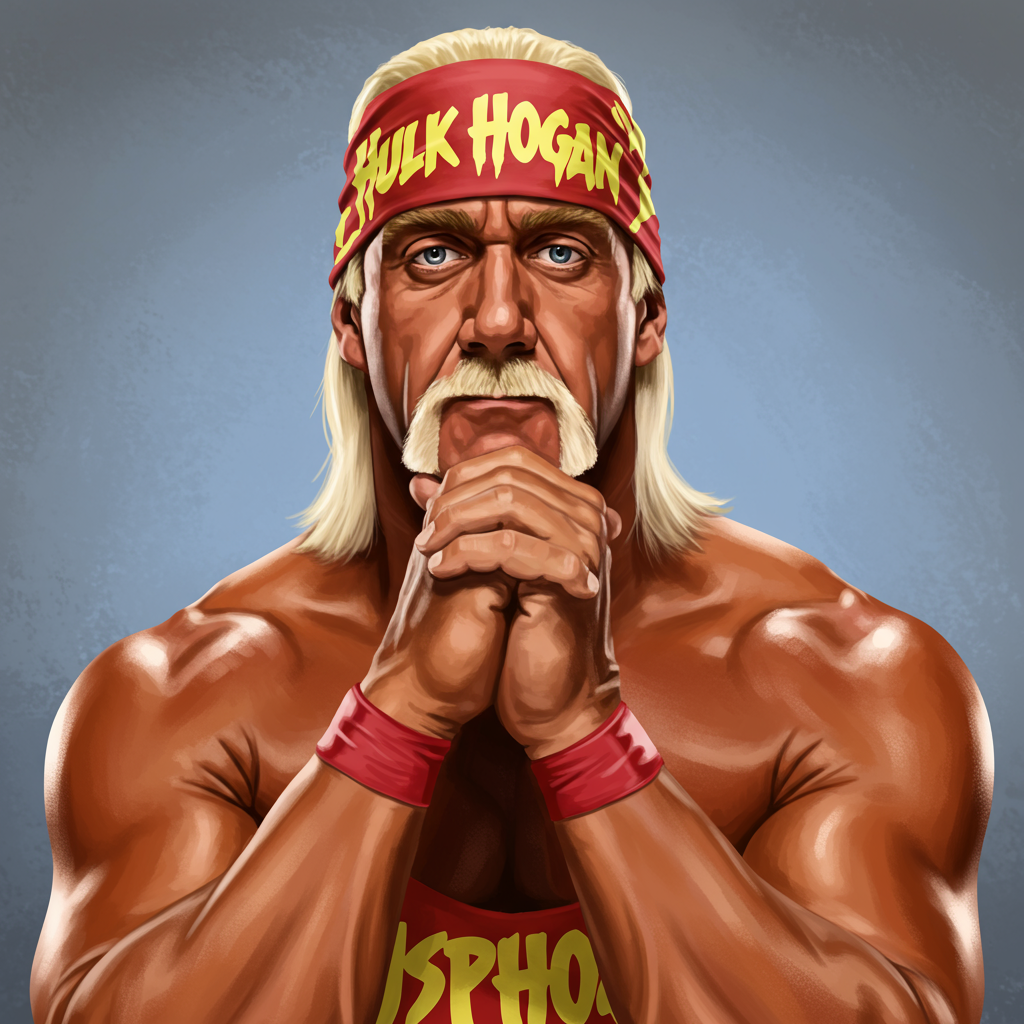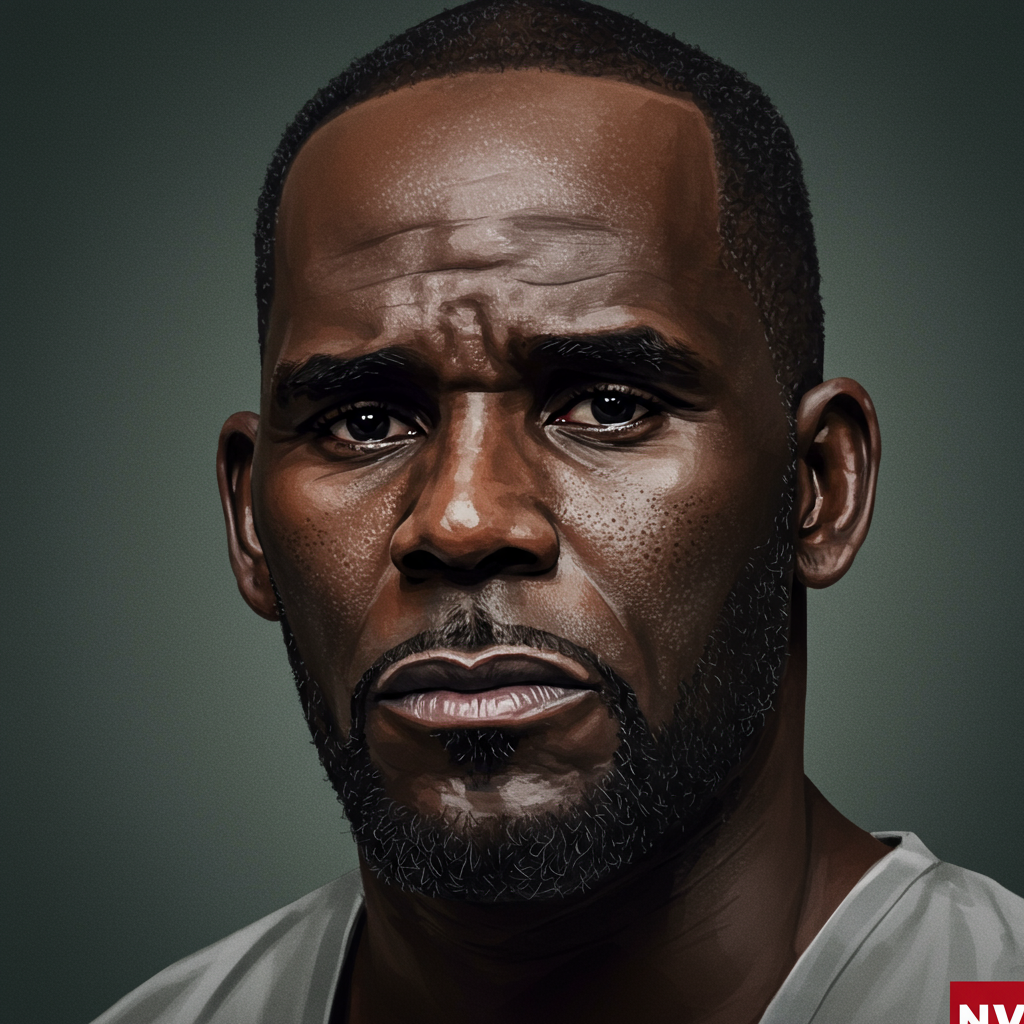The world of sports entertainment is mourning the loss of an undeniable titan. Legendary WWE Hall of Famer Hulk Hogan, born Terry Gene Bollea, passed away on Thursday, July 24, at the age of 71. Reports confirmed he suffered a cardiac arrest at his Clearwater, Florida residence, marking the end of an era for one of pop culture’s most recognizable figures. His passing leaves an immense void, but his incredible legacy will continue to resonate with generations of fans globally.
Hogan’s impact stretched far beyond the wrestling ring. He single-handedly propelled professional wrestling from a niche regional attraction into a mainstream global phenomenon. Through the “Hulkamania” craze of the 1980s and his shocking transformation with the New World Order (nWo) in the 1990s, Hogan consistently redefined what a sports entertainer could be. Whether portraying a heroic figure in his iconic red and yellow or adopting a villainous persona in black and white, “The Hulkster” remained an enduring and beloved star.
The Genesis of a Legend: From Ruckus to Ring King
Terry Bollea’s journey to superstardom began far from the wrestling spotlight. He abandoned a budding music career with his Tampa, Florida-based band, Ruckus, after being discovered by WWE Hall of Famers Jack and Gerry Brisco. In 1977, Bollea began rigorous training under Hiro Matsuda. Matsuda, known for his harsh methods, intentionally broke Hogan’s lower leg to test his passion, a challenge Hogan endured, proving his dedication.
His professional debut came a year later, on August 10, 1977, against B. Brian Blair in Fort Myers, Florida, for Championship Wrestling from Florida. Bollea initially competed under a mask as Super Destroyer in Florida. He later teamed with his friend Ed Leslie, famously known as Brutus Beefcake, as the “Boulder Brothers,” Terry and Ed Boulder, across various southern territories. The “Hulk” moniker emerged after a talk show appearance in Memphis with Lou Ferrigno, star of TV’s “The Incredible Hulk,” when the host remarked on Bollea’s significantly larger physique. This led him to adopt the name Terry “The Hulk” Boulder.
The Rise of WWE and “Hulkamania”
In 1979, Bollea first appeared in WWE, then known as the World Wrestling Federation (WWF). It was here that Vincent J. McMahon, then head of the company, christened him “Hulk Hogan,” suggesting an Irish surname to complement his growing charisma. Initially a villain, Hogan quickly made his mark. He defeated the future “Million Dollar Man” Ted DiBiase in his Madison Square Garden debut, challenged Bob Backlund for the WWE Championship, and faced Andre the Giant in New York City’s Shea Stadium in August 1980, years before their legendary WrestleMania III encounter.
After a memorable appearance as Thunderlips in the 1982 film “Rocky III,” Hogan spent three years competing for Verne Gagne’s AWA and Antonio Inoki’s New Japan Pro Wrestling. His return to WWE truly ignited his career. On January 23, 1984, Hogan defeated The Iron Sheik to claim his first WWE Championship, setting off a cultural phenomenon known as “Hulkamania.” This era saw Hogan embody the ultimate hero, encouraging his “Hulkamaniacs” to “eat their vegetables and say their prayers.” His signature catchphrases like “Whatcha Gonna Do When Hulkamania Runs Wild On You!?” and his iconic leg drop became synonymous with wrestling.
For nearly a decade, “Hulkamania” and WWE’s global footprint expanded together. WWE branched out to nationally syndicated television and then pay-per-view events, with Hogan consistently headlining. Memorable moments include teaming with Mr. T at the inaugural WrestleMania and his historic defeat of Andre the Giant before over 93,000 fans at WrestleMania III in the Pontiac Silverdome. Hogan amassed an unprecedented five WWE Championships during this period, main-evented WrestleMania eight times, and sold millions of red and yellow merchandise.
Reinvention and Controversy: Hollywood Hogan to Hall of Fame
In August 1993, Hogan left WWE, intending to pursue a full-time acting career with his syndicated show “Thunder in Paradise.” However, his magnetic pull to sports entertainment was too strong. He joined World Championship Wrestling (WCW), a rival promotion, drawn in by Ric Flair and WCW Executive Producer Eric Bischoff. With Mr. T and Shaquille O’Neal at ringside, Hogan defeated Flair for the WCW World Heavyweight Championship in his debut match at Bash at the Beach in Orlando, Florida.
Two years later, Hogan executed one of the most shocking turns in wrestling history. He betrayed WCW fans and heroes like Sting, Lex Luger, and Randy Savage, aligning with Scott Hall and Kevin Nash to form the New World Order (nWo). This villainous transformation into “Hollywood Hogan” catapulted the nWo to unprecedented popularity, becoming WCW’s primary weapon in the infamous Monday Night War against WWE’s Monday Night Raw. During his six years with WCW, Hogan secured an additional six WCW World Heavyweight Championships, bringing his total World Championships to 12.
Following WCW’s demise, Hogan, Hall, and Nash made a highly anticipated return to WWE in February 2002 as the reviled nWo. Though his third WWE tenure was brief, Hogan experienced a resurgence in popularity. Fans surprisingly cheered him during his iconic “passing of the torch” match against The Rock at WrestleMania X8. He later captured his sixth WWE Championship from Triple H at Backlash 2002, solidifying his enduring connection with the WWE Universe.
Life Beyond the Ropes and Later Years
Hogan’s influence extended beyond the squared circle into mainstream entertainment. He starred in several films, including “No Holds Barred,” “Suburban Commando,” and “Mr. Nanny.” He also captivated audiences on the hit VH1 reality show “Hogan Knows Best,” featuring his family: Linda, Brooke, and Nick. His captivating “promos” often began with his memorable phrase, “Well, lemme tell ya something, Mean Gene!” to interviewer Mean Gene Okerlund.
The Hulkster received his first WWE Hall of Fame induction in 2005, honored by his “Rocky III” co-star and friend, Sylvester Stallone. He returned to WWE in 2014 as the host of WrestleMania 30. The historic event kicked off with Hogan, The Rock, and “Stone Cold” Steve Austin — arguably three of the most famous sports entertainers of all time — sharing the ring, delighting over 75,000 fans in New Orleans.
However, Hogan’s later career was also marked by significant controversies. In 1985, an incident with Richard Belzer led to a lawsuit. In 1994, he testified in a federal steroid case against Vince McMahon, admitting steroid use. In 2012, Hogan successfully sued Gawker for invasion of privacy after the publication of a sex tape, winning a substantial jury award. In 2015, a 2007 audio recording surfaced revealing Hogan using racial slurs. This led to his temporary removal from the WWE website and Hall of Fame. Hogan publicly apologized, attributing the slur to his upbringing. He was reinstated into the WWE Hall of Fame in 2018 following numerous public apologies and engagement in community work. In 2020, he received a second WWE Hall of Fame induction as a member of the nWo.
Health Struggles and Final Chapters
In recent years, Hogan had been transparent about the immense physical toll his wrestling career took. He often stated he had “no original body parts left,” revealing on Jake Paul’s podcast that he had undergone “over two dozen surgeries in the last ten years,” including ten back surgeries and replacements of both knees, hips, and shoulders. Prior to his passing, there had been recent rumors concerning his health, which his wife, Sky, whom he married in September 2023, had denied, confirming he was recovering from various surgeries, including a significant heart operation just weeks before his death.
Despite these challenges, Hogan remained in the public eye. His final WWE appearance was in January 2025 at the Netflix debut of Monday Night Raw. Just weeks before his passing, he appeared at the 2024 Republican National Convention, endorsing former President Donald Trump, a long-time friend. Hogan famously ripped his shirt to reveal a Trump-Vance 2024 T-shirt, highlighting his enduring “larger-than-life” persona even at 71.
Frequently Asked Questions
What was the cause of Hulk Hogan’s passing?
Hulk Hogan, whose real name was Terry Gene Bollea, passed away on Thursday, July 24, at the age of 71. Official reports confirmed that his death was due to cardiac arrest. Emergency personnel responded to a call at his home in Clearwater, Florida, transporting him to a local hospital where he was pronounced deceased. Authorities stated there were no signs of foul play.
When did Hulk Hogan begin his professional wrestling career, and what was his original name?
Terry Gene Bollea, known globally as Hulk Hogan, began his professional wrestling career in August 1977. His iconic “Hulk” nickname originated after a talk show appearance with “The Incredible Hulk” actor Lou Ferrigno, when Bollea’s larger physique was noted. He later became “Hulk Hogan” at the suggestion of Vincent J. McMahon when he joined the World Wrestling Federation (WWE) in 1979.
How did Hulk Hogan transform professional wrestling into a global phenomenon?
Hulk Hogan was instrumental in elevating professional wrestling from a regional sport to a mainstream global entertainment spectacle. His “Hulkamania” era in the 1980s, characterized by his heroic persona, colorful attire, and fan-friendly catchphrases, captivated children and adults alike, dramatically broadening wrestling’s appeal. Later, his shocking transformation into “Hollywood Hogan” and the formation of the New World Order (nWo) faction in WCW further revolutionized the industry, proving his adaptability and continuing to draw massive audiences and unprecedented fame.
A Legacy of Power and Pop Culture
Few names are as synonymous with sports entertainment as Hulk Hogan. He was the central figure in WWE’s monumental rise from a regional attraction to a worldwide entertainment leader. His superhuman size, undeniable charisma, and ability to reinvent himself allowed him to reach unparalleled heights in sports and entertainment. Hogan not only packed arenas like the Pontiac Silverdome, won numerous championships, and starred in movies, but he also set the definitive standard for what a WWE Superstar could truly become. His impact, both in and out of the ring, will forever be etched in the annals of pop culture history. WWE extends its deepest condolences to Bollea’s family, friends, and legions of fans worldwide.



